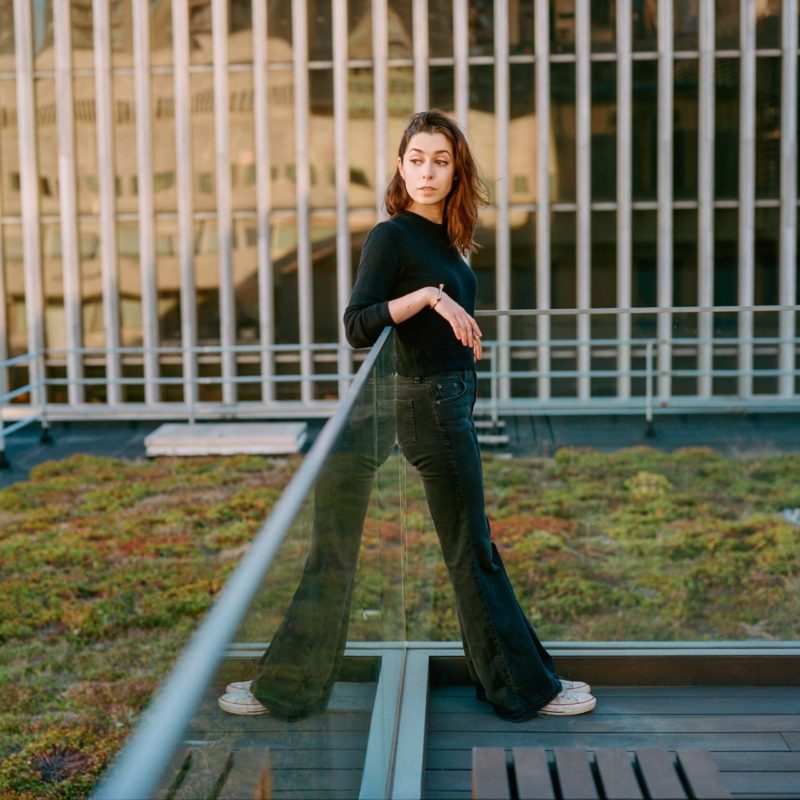An Interview with Cristin Milioti
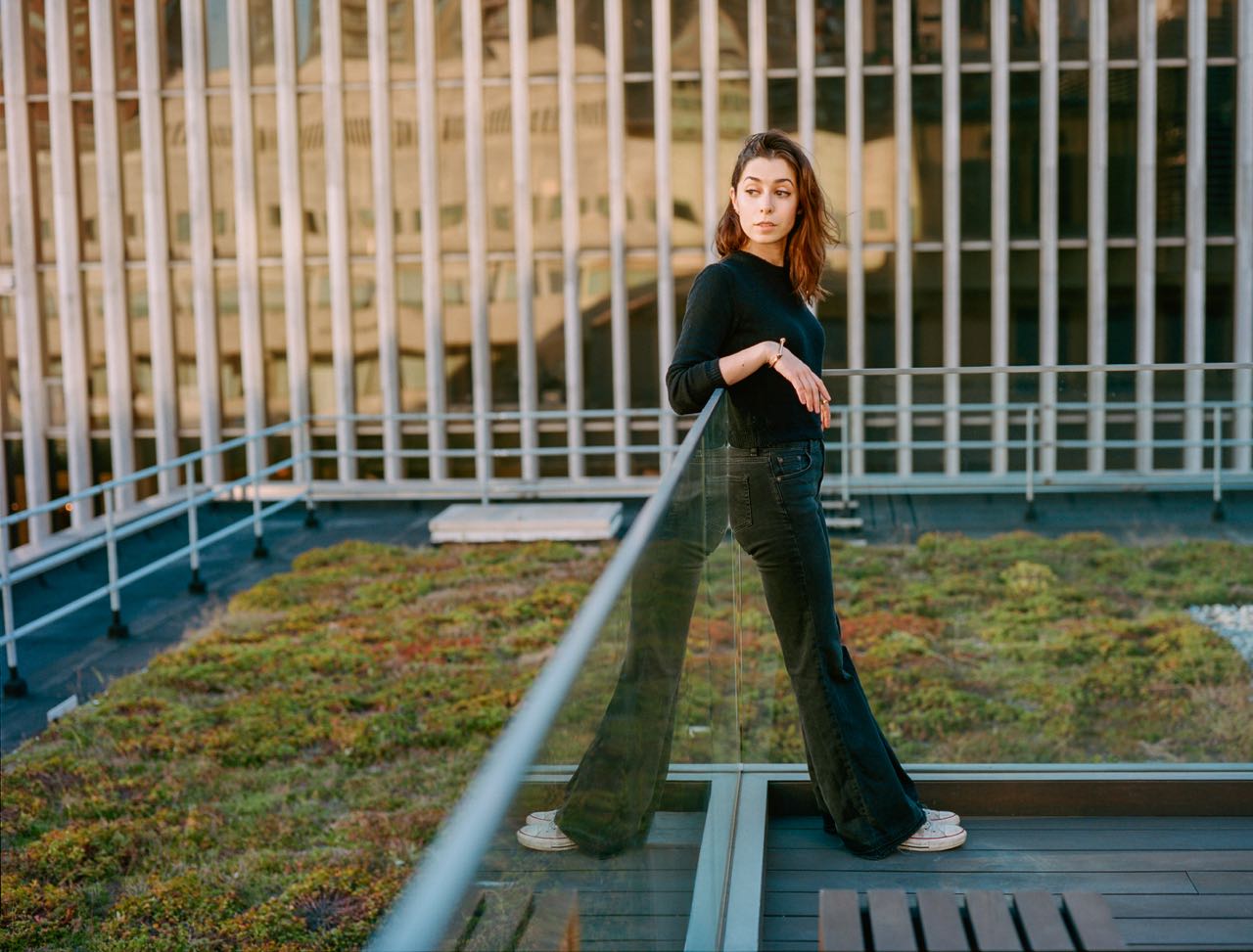
Written by Victoria Myers
Photography by Jacqueline Harriet
October 24th, 2017
In the new play After the Blast by Zoe Kazan and directed by Lila Neugebauer, the stage of Lincoln Center’s Claire Tow Theater is transformed into a model community—only this one exists deep underground after a nuclear blast and climate change have made the earth uninhabitable. At the center of the drama is Anna, played by Cristin Milioti, a woman struggling with her lack of purpose in the world, depression, and her desire to have a baby within the constraints of this new society. The role is another in Cristin’s eclectic theatre resume that includes a Tony nomination for Once and a turn in the David Bowie musical Lazarus (not to mention a number of film and TV credits, most notably as the mother on How I Met Your Mother). We recently sat down with her to discuss her role in After the Blast, likability, frustrating casting notices, and more.
When you first got the script, what drew you to the play? Was it the role or the very unique situation of the play and the setting?
I would say that it was the role and it was Lila and Zoe that drew me to it. I did a really tiny, intimate reading with Lila and Zoe and some other actors in an office in Brooklyn about a year ago. I fell in love with it then. I was so deeply moved by this play. I was so attracted to this role because she’s like a real woman. She’s a real, fully formed person, which, as a woman, you don’t always get the pleasure of playing. That’s been talked about a lot, which is great, but it’s really true. There’s a real absence of roles that are this fully formed and fully realized. And then on top of that, I’ve been friends with Zoe for a long time and I have always loved Lila—I’ve known her a little bit socially, but also I’ve just loved her work. And I’ve loved Zoe’s work.
What was your first way into the character?
I don’t really know how to talk about that stuff because I’m a little superstitious about talking about stuff like that. Not to sound too actor-y. It’s very private.
In general terms, do you find that you look for the way a character is similar to you or do you go towards the way that they’re different?
I would say that mostly what I’m attracted to are characters that are extremely different than me. That is what really gets me going. And then I inevitably realize halfway through the similarities that I share with them, and vice versa. Sometimes I will be working on a role that I think hits pretty close to home and then I’ll realize how different we are. But I tend to look for things that are very, very different from me, even physically. That’s my favorite thing to do.
With this, because the setting is made up, did you find that there’s any freedom in that for you as an actor?
I always forget that it’s set in the future, which is, I think, part of the beauty of it. I think that she captures the elements of humanity that stay with us regardless of our situation or regardless of the times we live in, which is really, really beautiful. When I did the first reading of it, I ran out of there and stared at the sky and felt the grass in my hands and touched a tree. I was so upset by the confines of their world. It’s very upsetting.
Was it difficult to find a way to keep a character who’s depressed active?
Lila and I talked a lot about that throughout rehearsals: how to make something active that’s inherently inactive. That was definitely a huge part of our process and something that I’m still actively exploring, but I think we manage it.
Depression, especially in a protagonist, isn’t something we see on stage that often.
I think that also really attracted me to this role. I think people are very uncomfortable looking at any type of mental illness, but depression in general is something that so many people suffer from, and I think specifically with women, no one wants to see it, you know? I think that there’s this romantic image of the tortured male, depressive genius. But I think to see a woman, who is not a world famous poet, go through this thing that millions of people go through, I do think that is uncomfortable for a lot of people. I don’t think that’s very well portrayed in plays or films or TV. So I think that was one of the things that really attracted me to this. To play someone where you see all of her edges the minute you meet her. She is not outwardly perfect or likable or any of that. She’s thorny, and she’s fiercely intelligent. And she’s right. And she has all of her skin off, which I also find very interesting to play.
Always having to be likable comes up in interviews a lot as a frustration from actresses. Is it a relief to not have to worry about that?
Oh, are you fucking kidding me? It is a huge relief. And to work with two women. Two women that I not only love as human beings, but who I admire so deeply as artists. And that’s not to say that I won’t ever work with men. That’s ridiculous. I work with amazing humans. I will say that when something is written by a woman, sometimes it feels a little more real. Of course, that’s a pretty blanket statement. I’ve definitely worked on things that have been written by men where they have built the most beautiful female characters I’ve had the pleasure to play.
I’m going to read you a couple of casting things I’ve gotten recently.
Oh, go for it.
This is what we usually get: “Spirited girl. Fiery and vulnerable. Warmth and likability is primary.” And that’s like a friendly one. Here’s another one I got recently: “She is a strong, confident, maternal, charismatic women.” Those are all fine things. They’re great. But sometimes they seem like they’re masks for what they really want, which is that they want likability. Of course, that’s changing. The landscape is changing, but it’s still very, very present.
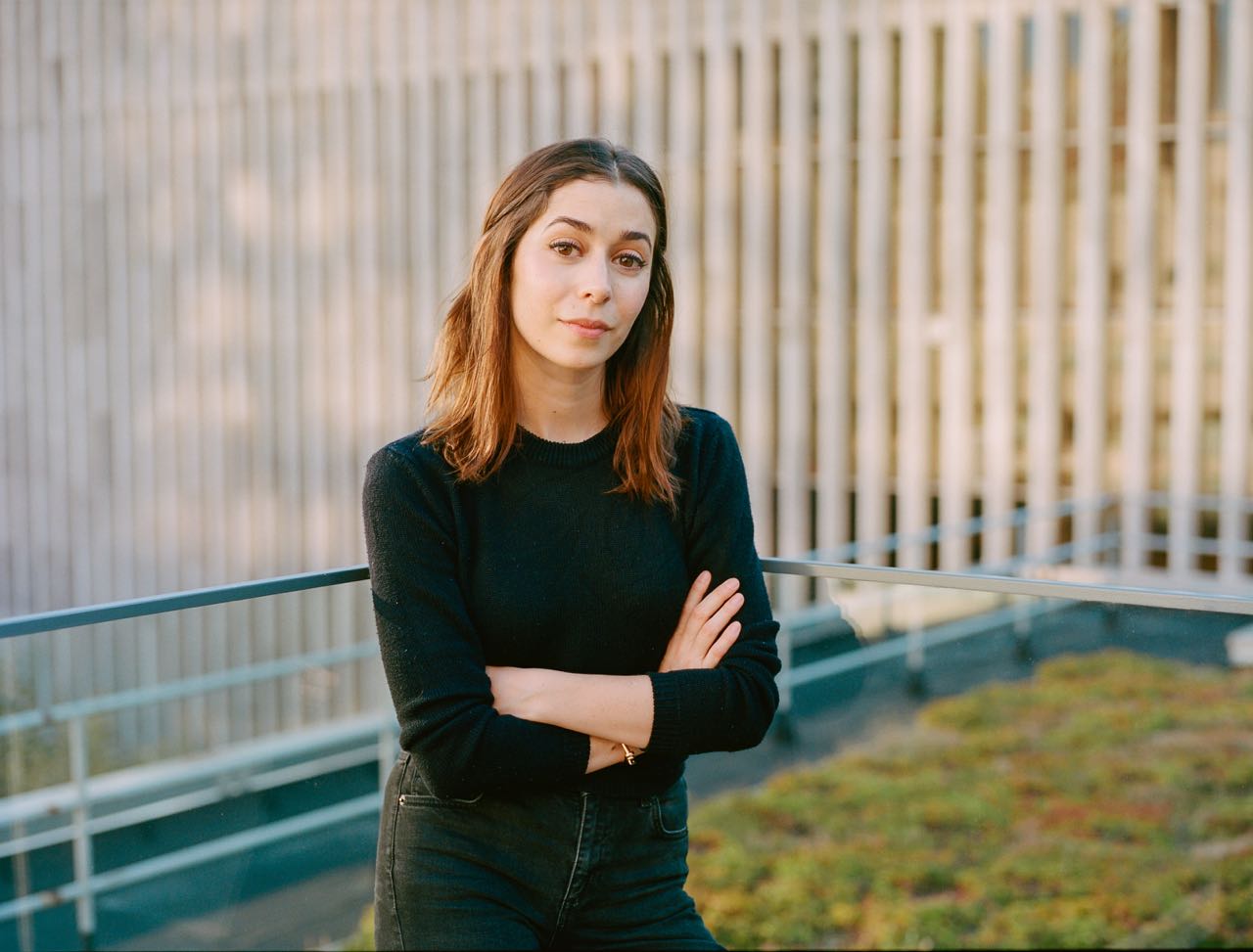
What, thematically, is the most interesting to you at the moment with playing this character? And has that changed since you first read it and over rehearsals and the beginning of previews?
Sometimes, I’m not very good at putting into words what I like about a role. It’s more of like a witchy feeling of wanting to inhabit the person. And a lot of times I don’t fully understand, until I’m very deep in, why I wanted to inhabit that mind.
In terms of the big themes that the play deals with, is that something that you take into your process or do you really just focus on the character and what their moment-to-moment journey is?
I tend to be pretty moment-to-moment with it. Because I think if you think in big sweeping terms you can get lost and sort of forget to tell that person’s story.
Do you find that there’s a particular resonance in doing this play now because of our current political situation?
Oh, for sure. It’s so eerie, especially with all the North Korea stuff that is happening. The first couple days of rehearsal is when that was majorly going down in the news. And this world that they live in is a result of nuclear fallout and climate change and it couldn’t be more real. I mean we’re sitting on a deck in October and it’s 70 degrees. It’s ridiculous. It’s so scary. It’s so scary that our kids might not know seasons. I could talk about the state of the world and my thoughts on our current regime endlessly, but I don’t think I’d be saying anything particularly new. But yes, it’s very, very timely. And very real. I think that’s what makes it scary: it’s not far off from what may happen.
To go back to what you were saying before about roles for women, what type of effect does that have on you as a person and as an actor when you read the descriptions like the ones you were reading before?
I’ve been doing it long enough where I try and focus on the positives of the change I have seen in the character descriptions, and it is enormous. And that should be the main event. In the ten years that I’ve been doing this and it went from seeing descriptions that were so insane—like, “must be extremely fit, extremely smart, likable, sexy, funny, fuckable”—like literally 20 adjectives where no one is like that. That doesn’t exist. That was like some sort of cartoon version of what a male-dominated industry thinks of as a female love interest or lead. It has changed, and there’s so much more of an audience of people who want to see real flawed humans, but specifically real flawed women as well. So I think that that’s the most positive part. I don’t know what [the descriptions] make me think. It mostly makes me roll my eyes and then say no. And I’m lucky enough right now to be able to say no. But we still have a long way to go, clearly. I mean, look at our country. This week with all of these [Harvey] Weinstein things that are going on—it is so awful that he was allowed to thrive. I can’t even begin to put into words the rage I have towards him and people like him. Anyone who abuses power that way or gets off on stealing someone’s human rights. But it is thrilling to watch him fall and it is thrilling that women are standing up and being like, “No, no, no. No more, no more.” It feels like this incredible reaction that came right from our fucking bozo president. Looking at that and being like, “No, we won’t take this shit.” And what I hope is that Trump and all of his cronies are like the death rattle; the final breath before that sort of element dies off.
I think a lot of people feel the way you feel. Particularly women and particularly women in the entertainment industry, because it seems like this is the tip of the iceberg.
Well, there’s just such a pressure. There’s still such pressure to be all of these things. We just saw it with the election. We are raised to automatically apologize. It’s so deeply bred in our culture. The fact that Hillary has to have soft makeup and a white pantsuit and talk about being a grandmother and have some video that’s about what a soft person she is, when she was the most fucking qualified person for the job. People found her shrill, and they find this screeching Cheeto buffoon to be confident. And she raises her voice by a decibel and she’s a witch. It’s unbelievable. It’s so deeply sad, but I do think the tide is changing. And I hope that, should I ever have kids, my daughter will know a different world than I did. Just like I knew a different world than my mom did.
Have you found that you’ve had a learning curve in knowing how to not apologize? Specifically, when you’re in rehearsal and you want to say, “No, this isn’t working for me,” or, “I think it should be this way”?
Oh, sure. I mean it’s different. Like now I’m in this warm, safe, beautiful rehearsal room. And theatre is different, too. With theatre, even though it’s not a lot of time, you do have the gift of time to explore something together as a company and so, of course, I’ll bring up things, “Well, this doesn’t feel right,” or, “This feels kind of strange.” With TV and film you move so fast, and there’s so much money on the line, that yeah, I have struggled with getting up the nerve to be like, “That doesn’t feel right.” I’m usually pretty good about it. But of course, there have been times I’ve lost.
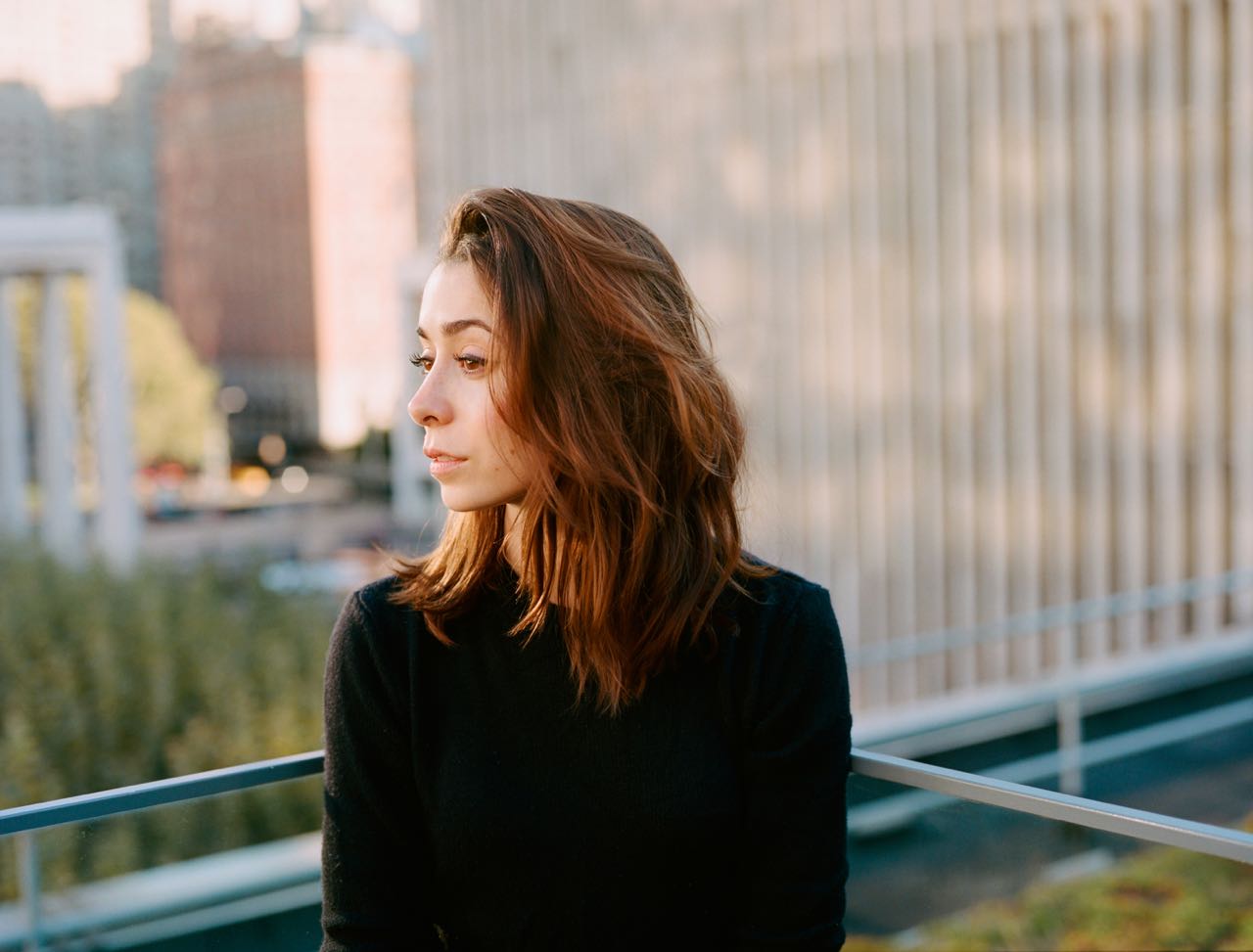
Since you’ve been in the industry for a while, how did typecasting and having so much information coming from other people about what you’re good at or what they think of when they see you, affect how you developed not only as an actor, but also as a human being?
I didn’t really start working until I was 20 or 21 years old, which is still so young. I don’t know how people do it when they start as children. Because this industry is really brutal. For all of its beauty and magic, there’s also a really brutal side to it. I’m not on any social media, which I think helps shield me from any thoughts that people might have. I don’t read reviews as a very strict rule. The idea of a review to me is so absurd. Art is the most subjective thing. I don’t care what some asshole thinks of a painting. Why would I then not go see a painting? Don’t I want to see it and draw my own conclusion? And some dude in the back is going to have a completely different experience of a play or a film than I will. We have different lives. So I don’t read reviews, and that helps. But yeah, I’ve gotten feedback before like, “She’s too cerebral.” And what do you do with that? I don’t even know what that means—I’m too smart? How is that a negative? I try not to take that in. I also will say, I’ve been really lucky that I’ve done a very wide variety of roles, and that is very important to me when I choose a role: how different is it from last time? There have been some things recently that I’ve been asked about and I’ve read them and they’ve been wonderful, but they remind me of what I just did a year ago. I’m lucky enough to be able to do that, and that is very important to me.
I think when I was younger, it was so clear that I was too weird to be on Gossip Girl. You definitely focus on the things that you’re not, and that changes the more you work and the more you have your feet on the ground as a human. Of course, I still focus on those things. Of course, you still get feedback sometimes where you read between lines like, “We want someone more conventionally attractive.” That’s an awful side of things. I just ignore it. But, of course, it works its way in. It gets better the older you get though, because you just learn to love yourself more, I guess. I feel like that’s very “the back of a Hallmark card” or something, but it’s true. I was very focused for a long time on what I wasn’t and now I’m more focused on, I might not be right for it, but here’s what I am. And not in a pigeonhole sense. I go in on auditions now and I always approach it like, here’s how I would do this role as opposed to please pick me. I think that is what has shifted over time.
Did you have a moment where that shifted or was it really just very gradual over time?
It was gradual. There are still things that I’ll get called in for and I’ll be so nervous because I’ll be like, “I know I don’t look right.” When you go in to to play the love interest, I feel like an enormous pressure to look a certain way. And I’m very comfortable with how I look, but in those rooms sometimes, it can just get away from me. Where you just feel like a product, and I didn’t get into this to feel like a product. I think that’s what bugs me out about social media—my fear is that it would make me feel like a product as opposed to a human.
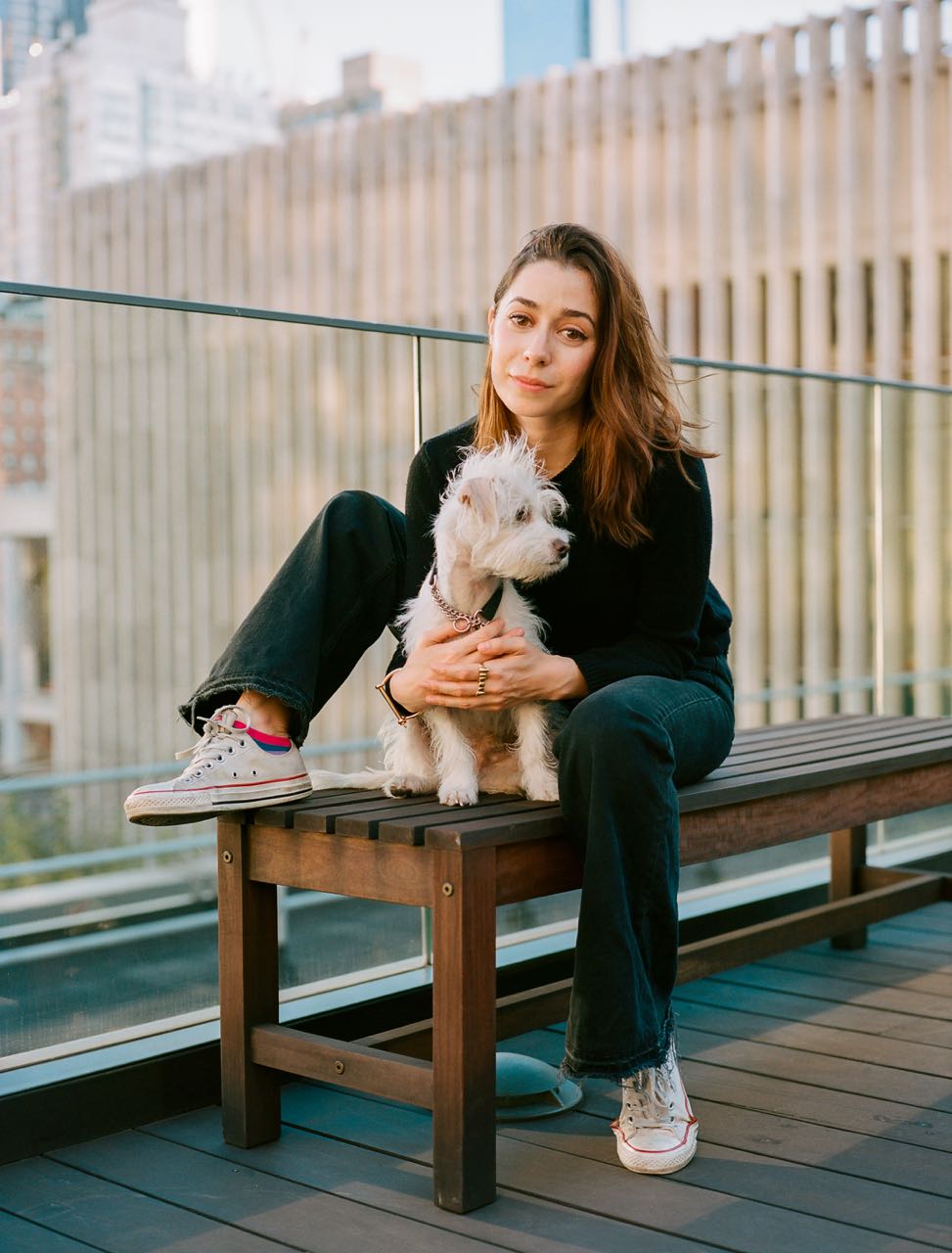
You’ve done a lot of new shows and a variety of new work. From your perspective, how do you think the theatre community can better develop new work?
To just continue to take chances. I mean, I get it. It’s a big investment to put up a play, and you want one that is going to work, but I think that’s part of the adventure. That’s also part of the pain. That’s also part of the joy—sometimes you take a big swing and it sucks and that’s how you learn. But at least you took that chance. That’s what’s so beautiful about theatre that you don’t get the luxury of in TV and film.
I do wish that they paid their artists a living wage. And even though our union just secured that huge victory and that is so incredible and inspiring and important, I think if patrons paying these ticket prices knew what the writers and actors and directors made, they would not sleep at night. I think that if more people could make an actual New York living wage doing this, I think new work would be sprouting up like gangbusters. It is so hard to do and you don’t make a living. You can’t live on it. It’s terrible. We’re living in the greatest city in the world—that shouldn’t be an issue.
What do you think the theatre community can do to make things better for women?
I think we can help each other, for sure. I have felt such a freedom in theatre. I haven’t felt the same sort of pressure that I do in film and television. But I’m not on the other side of it. So, to me, I feel like theatre has been very nourishing, but of course, there’s such a dearth of female directors, which is an absolute nightmare. They could start there: hiring more women as writers, more women as directors, more female crew members.
And lastly, what do you hope audiences take away from the play?
I just hope they walk away with their hearts full. I think there’s a lot of things you can take away from this play, and I hope they take away what is most meaningful to them. And that they feel like they went on an emotional journey and that they hold each other a little closer. And that they take care of the planet.

